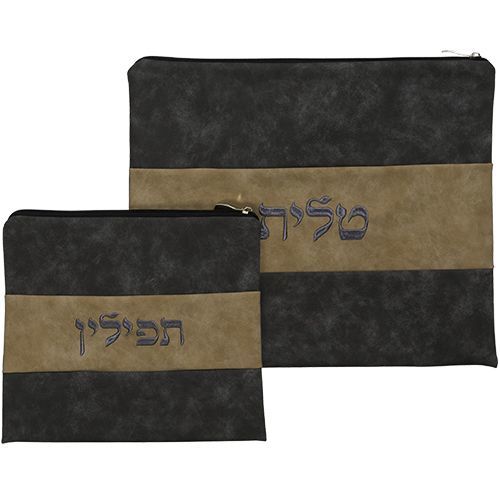
40 Days of Opportunity
Immediately after Hashem gave the Jewish People the Torah, they sinned by worshipping the Golden Calf (Shemot 32:1-6). They were, in effect, rejecting Hashem's great gift...

Immediately after Hashem gave the Jewish People the Torah, they sinned by worshiping the Golden Calf (Shemot 32:1-6). They were, in effect, rejecting Hashem’s great gift. When Moshe (Moses) saw that, he broke the first set of Luchot (Holy Tablets), on which were inscribed the Ten Commandments.
Moshe then ascended Har Sinai (Mount Sinai) a second time and pleaded with God to have mercy and forgive the Jewish people.
God accepted Moshe’s pleas and commanded Moshe to make another set of tablets like the first.
Moshe ascended the mountain a third time on Rosh Chodesh Elul (the first day of the month of Elul) and remained there for 40 days until the 10th of Tishrei, (Yom Kippur).
On the 10th of Tishrei, Moshe descended Har Sinai with the second set of Luchot. These tablets were granted to the Jewish people as a sign of renewed Divine favor.
These 40 days, from the first of Elul until the 10th of Tishrei, (Yom Kippur), were designated as days of repentance and forgiveness. These days are especially appropriate for personal reflection and repentance since they mark the perennial recurrence of Divine compassion.
Preparation for Judgment
We would never think to appear in court (even a small claims court), without proper preparation. How much more so should we prepare before appearing before the Heavenly Court on Rosh Hashanah!
The month of Elul is our opportunity to prepare! It’s a time for self-examination and for taking real steps toward change.
Raba (an Amorah or late era Talmudic sage) says that after a hundred and twenty years, when a person stands before the Heavenly Tribunal, he will be asked:
- Did you conduct your business dealings with integrity?
- Did you set aside fixed times for the study of Torah?
- Did you concern yourself with the duty of raising a family?
- Did you retain a confident faith in Israel’s future redemption and the coming era of universal peace?
Instead of waiting until we stand before the Heavenly Tribunal, let us ask ourselves these questions now, during the month of Elul!
What are Sin and Repentance?
The word “sin” or “chet” in Hebrew means “failure in our relationship with Hashem.”
Our goal should be to continually move closer to God. “Chet” is behavior which causes us to move away from God.
“Repentance” or “teshuva” in Hebrew means “return.”
In this context, it means “return to God” and to behave as required of us by God.
While we deeply regret our movement away from God, we should not despair. Rather, we should bear in mind the verse written by Shlomo Hamelech (King Solomon), the “wisest of men,” in Sefer Kohelet (Book of Ecclesiastics) (7:20),
“There is no one so righteous in the world, who does only good, and does not sin.”
But how do we return? How do we make deep, lasting changes?
The Four Steps of Repentance
Teshuva is a generous gift from God, which allows us to erase our improper actions through a four-step process (see below).
The Torah tells us that no matter how far we stray or how many times we sin, God will wait for us to return to Him through teshuva.
There are four parts to teshuva:
1. Leaving the sin
2. Regret
3. Confession before God
4. Acceptance for the future
2. Regret
3. Confession before God
4. Acceptance for the future
1. Leaving the Sin
Leaving the sin consists of stopping the sinful act. We cannot do teshuva while continuing to sin, even if we perform the next three steps perfectly.
2. Regret
Regret consists of sincerely regretting our wrong action. We must be genuinely ashamed and embarrassed of what we have done wrong.
3. Confession before God
Confession before God consists of an oral confession spoken out loud, in which we formulate — in words — the commitments and attitudes we have reached in our heart. We should say, “I have sinned, I have done such and such; I deeply regret my actions, and I declare before God, Who knows my innermost thoughts, that I will never do this sin again.”
4. Acceptance for the Future
Acceptance for the future consists of resolving in our heart to never to commit the sin again.
But…
1. The above four steps are only for sins committed against God. Before Hashem will accept our teshuva for sins committed against other people, we must first ask forgiveness from the person we have wronged.
For this reason, it is customary to contact family, friends and co-workers during the month of Elul and ask for forgiveness for anything we may have done to upset them during the past year(s).
2. These four steps are only valid if we do teshuva after we have sinned. We cannot say, “I will do this sin, then do teshuva so that Hashem will forgive me.” It doesn’t work that way!
Let’s remember that teshuva is an ongoing process that cannot be accomplished overnight. No matter how many times we may stumble, we should pick ourselves up and stubbornly continue to cling to our Creator!
What God is really looking for is the sincerity of the effort that a person puts into their Teshuvah.












Tell us what you think!
Thank you for your comment!
It will be published after approval by the Editor.